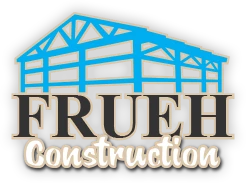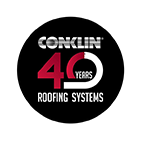
Few building materials are as durable as concrete. Its adaptability, strength, and longevity make concrete construction mainstay globally. Concrete shapes contemporary environments, from skyscrapers to sidewalks. At Frueh Construction, we are known to use concrete in our buildings, due to its several benefits. Let’s discuss why concrete is a popular building material, its advantages, and what determines its price. Call us today on 701-693-5765 to learn more about us!
Where is concrete used?
Concrete is used in many building projects. It is often used to create houses’ foundations and structures. Concrete is durable and stable for basements and driveways. Commercial development requires concrete for warehouses, offices, and retail areas. Its hefty load and environmental resistance make it excellent for these applications. Concrete’s endurance gives bridges, dams, and roads the strength to survive time and weather.
Benefits of Concrete

Concrete has several advantages beyond structural strength. One of its biggest benefits is its durability. Concrete is resistant to fire, vermin, and severe weather, making it a durable construction material. Concrete’s thermal bulk regulates interior temperatures and reduces energy use, which is particularly useful in harsh areas like North Dakota. Its adaptability lets it match diverse architectural types and design preferences with varying finishes and textures. Concrete is recyclable and reused, reducing its environmental effect. It also saves money during the life of a structure because of its minimal upkeep.
Concrete-friendly building
At Frueh Construction, we build agricultural, business, and residential structures. Each of these areas benefits from concrete construction. Concrete is durable enough for barns and silos in agriculture. It can house cattle and store agricultural goods since it resists moisture and chemicals. Strong concrete permits big open areas without support columns in commercial construction, boosting usable space for enterprises. Concrete foundations provide housing stability and lifespan, especially in adverse weather zones like North Dakota.
What determines concrete building costs?
Concrete building costs depend on several elements, each of which is important. Contractors and clients must understand these elements to budget and estimate costs. The following elements affect concrete construction pricing:
- Scope and Size: Project size and complexity greatly affect cost. Larger projects cost more due to additional materials, labor, and equipment.
- Materials: Cement, aggregates, additives, and reinforcing costs affect price. Raw material, transportation, and availability fluctuations might impact project costs.
- Equipment & Machinery: Concrete mixers, pumps, forms, and finishing tools increase project expenses. Pricing includes equipment rental, gasoline, maintenance, and depreciation.
- Design Complexity: Architecture and design complexity affect cost. For intricate patterns, artistic finishes, unusual textures, and distinctive forms, specialist processes and experienced personnel may increase expenses. Custom formwork, molds, and details increase project costs.
Reach out to us today!
All in all, concrete is adaptable, durable, and sustainable in construction. It is used in residential, commercial, and infrastructural constructions. We at Frueh Construction located in Lakota, North Dakota, use concrete’s qualities to build durable buildings. Concrete remains a solid basis for building the globe as the construction sector evolves. Give us a call today at 701-693-5765 to learn about our concrete services.


